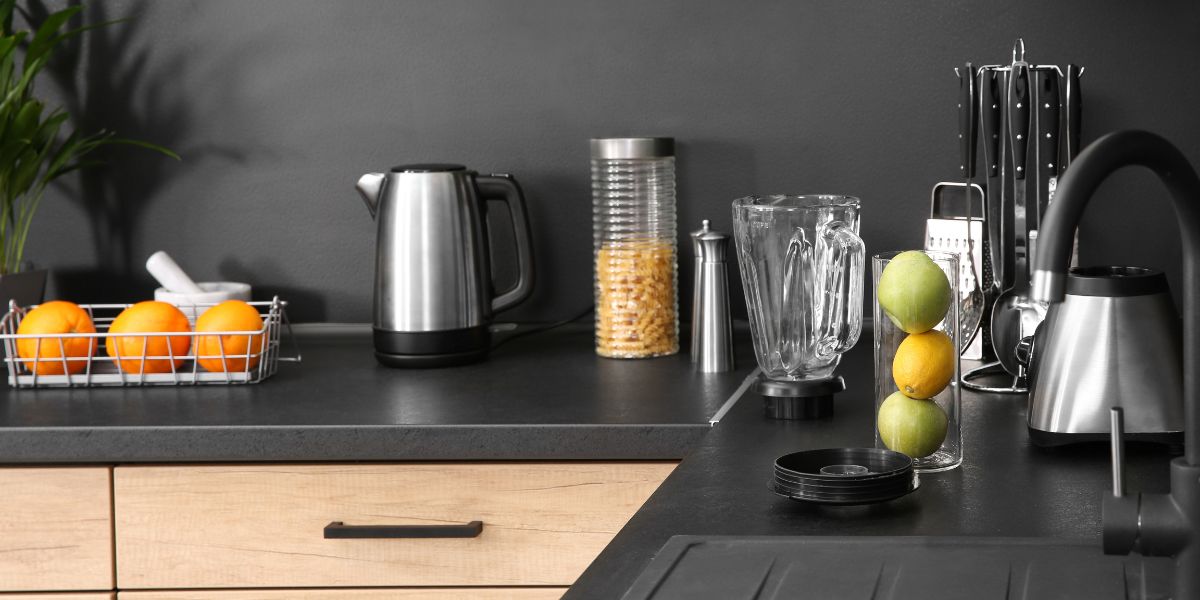
Maintaining and caring for your kitchen appliances is not just about cleanliness but also about ensuring their functionality and lifespan. Imagine having your appliances work seamlessly and efficiently for years to come without unexpected breakdowns or performance issues. How can you achieve this level of appliance bliss? Let's explore some practical tips and tricks that will help you keep your kitchen gadgets in top-notch shape, making your cooking experiences smoother and hassle-free.
Regular Cleaning and Maintenance
To keep your kitchen appliances running smoothly, it's essential to regularly clean and maintain them. Start by clearing out any food remnants from your toaster, microwave, and oven to prevent buildup that can affect their performance. For your refrigerator, wipe down both the interior and exterior regularly to avoid odors and keep it running efficiently. Don't forget to clean the filters in your range hood and dishwasher to ensure they work effectively.
Check the seals on your refrigerator and freezer doors for any signs of wear and tear. Replace them if necessary to maintain the proper temperature inside. Inspect the cords and plugs of your appliances for any damage, and if you notice any issues, have them repaired by a professional immediately. Regularly defrost your freezer to prevent ice buildup, which can reduce its efficiency.
Proper Storage and Handling
For efficient kitchen appliance maintenance, prioritize proper storage and handling to extend their lifespan and ensure optimal performance. When storing small appliances, such as blenders or toasters, unplug them and neatly wrap the cord to prevent damage. Store them in a clean, dry place away from heat sources to avoid potential hazards. Larger appliances like refrigerators and ovens should have enough space around them for proper ventilation. Keep refrigerator coils clean and free of dust to help them run efficiently.
When handling appliances, always follow the manufacturer's instructions for safe operation. Avoid using metal objects in microwaves and ensure pots and pans are the correct size for your stovetop burners. When moving appliances, like dishwashers or stoves, be careful not to damage flooring or scratch surfaces. Regularly check for loose screws or parts that may impact the appliance's functionality. By storing and handling your kitchen appliances properly, you can prolong their lifespan and reduce the need for costly repairs.
Addressing Minor Repairs Promptly
When small issues arise with your kitchen appliances, promptly addressing minor repairs can prevent further damage and maintain their efficiency. Ignoring minor problems can lead to more significant issues down the line, potentially costing you more time and money in the long run.
For example, a leaking refrigerator may seem like a small nuisance at first, but if left unattended, it could cause water damage to your floors and impact the appliance's cooling capabilities.
To address minor repairs promptly, start by identifying the issue. Is your stove burner not heating up properly? Is your dishwasher making strange noises? Once you pinpoint the problem, consult the appliance manual for troubleshooting tips. Many minor repairs can be easily fixed with simple adjustments or part replacements.
If you're unsure about how to fix the problem yourself, don't hesitate to call a professional technician. They can quickly diagnose the issue and repair it correctly, ensuring your appliance continues to function efficiently for years to come. Remember, addressing minor repairs promptly is key to extending the lifespan of your kitchen appliances.
Understanding Manufacturer's Guidelines
Following the manufacturer's guidelines is essential for maintaining the optimal performance and longevity of your kitchen appliances. These guidelines are specifically designed by the manufacturer to ensure that your appliances function correctly and safely. To start, always refer to the user manual provided by the manufacturer for detailed instructions on installation, operation, and maintenance of each appliance. Pay attention to recommended cleaning methods, frequency of maintenance checks, and any specific usage instructions.
Ignoring the manufacturer's guidelines can lead to reduced efficiency, potential safety hazards, and even void warranties. For example, using harsh cleaning products not recommended by the manufacturer can damage the appliance's finish or internal components. Overlooking maintenance schedules such as changing filters or inspecting seals can result in poor performance or malfunctions. By understanding and adhering to the manufacturer's guidelines, you can ensure that your kitchen appliances operate smoothly, last longer, and save you from costly repairs or replacements.
Importance of Professional Servicing
Wondering why professional servicing is crucial for your kitchen appliances' longevity and performance? Regular professional servicing plays a pivotal role in ensuring that your appliances function at their best and last for a long time. While routine cleaning and maintenance are essential, there are intricate components within your appliances that may require expert attention.
Professional technicians have the expertise to detect minor issues before they escalate into major problems, saving you from costly repairs or premature replacements.
Moreover, professional servicing helps optimize your appliances' efficiency, saving you money on energy bills in the long run. These experts can tune up your appliances, ensuring they operate at peak performance levels. Additionally, servicing by professionals can enhance the safety of your kitchen appliances. They can identify potential safety hazards and take preventive measures to protect you and your home from accidents.




